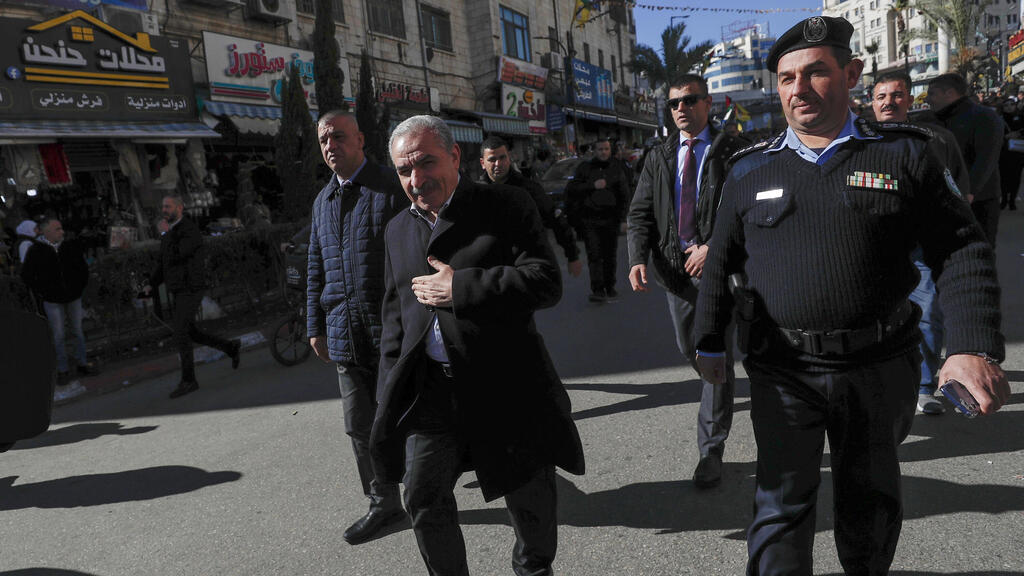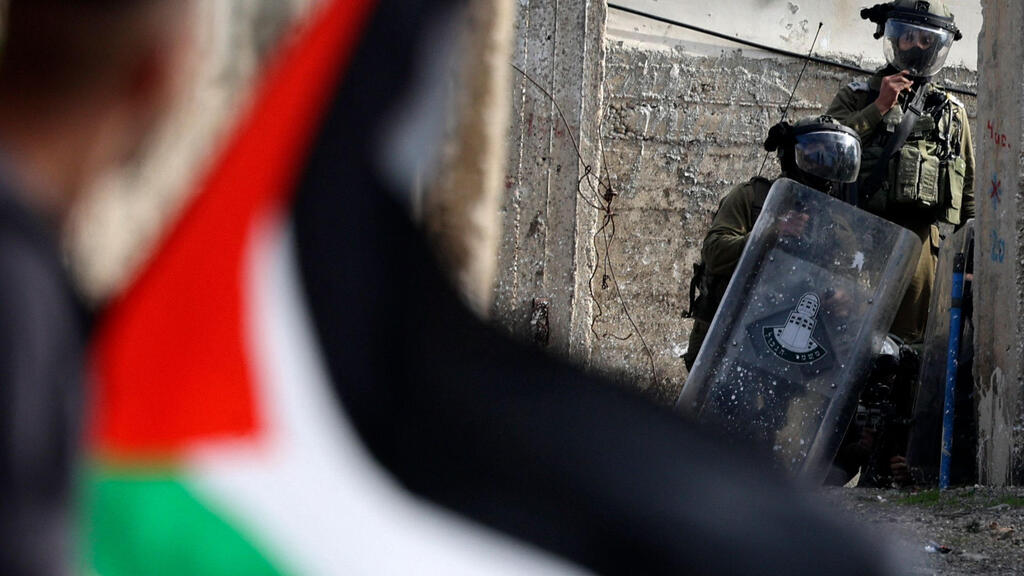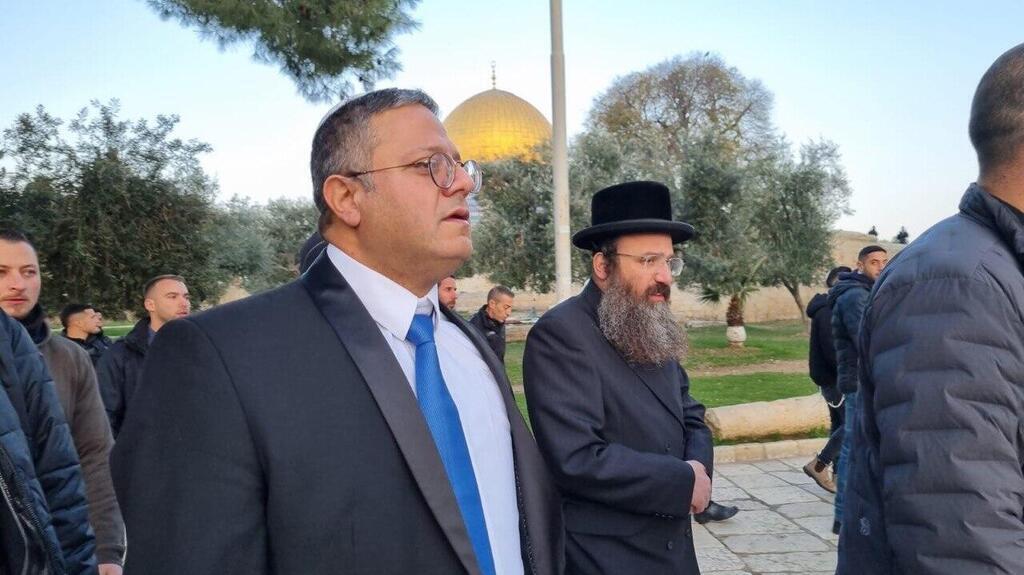The Palestinian prime minister on Monday accused Israel’s new ultra-nationalist government of trying to topple the internationally recognized Palestinian Authority, and warned that a series of new Israeli sanctions could further inflame what has been a particularly deadly period of fighting.
In recent days, Israel has withheld millions of dollars of Palestinian tax revenues, stripped Palestinian officials of VIP privileges and broken up a meeting of Palestinian parents discussing their children’s education. Late Sunday, Israel’s security minister banned public displays of the Palestinian flag.
Prime Minister Mohammad Shtayyeh’s said the Israeli measures, made in response to a Palestinian appeal for UN help, are “aimed at toppling the authority and pushing it to the brink financially and institutionally.”
“We consider these measures a new war against the Palestinian people, their capabilities and funds, and a war against the national authority, its survival and its achievements,” Shtayyeh said during his weekly cabinet meeting.
The Israeli measures have come in response to the UN General Assembly’s decision to ask the UN's highest judicial body to give its opinion on the legality of Israeli policies in the West Bank and east Jerusalem. Israel vehemently opposed the Palestinian-backed move. Decisions by the International Court of Justice are not binding, but can carry great influence.
Shtayyeh rejected Israeli claims that such moves are counter to peace.
“We have the right to complain and tell the world we are in pain,” he said in comments published in Haaretz earlier Monday. “Israel wants to prevent even the most non-violent way of fighting the occupation.”
A day earlier, Israel’s national security minister ordered police to ban on the Palestinian flag in public.
“Today I directed the Israel police to enforce the prohibition of flying any PLO flag that shows identification with a terrorist organization from the public sphere and to stop any incitement against the state of Israel,” Itamar Ben-Gvir announced on Twitter.
A far-right firebrand known for his anti-Palestinian rhetoric, Ben-Gvir drew widespread international condemnation when he visited Jerusalem’s most sensitive holy site last week.
Under Israeli law, flying the Palestinian flag is not a crime. But Israel’s attorney general in 2014 ruled that police have the authority to confiscate a flag if it disrupts public order or is done in support of terrorism.
Adalah, an Arab minority legal rights group, said that Ben-Gvir’s order falsely implies that any public display of the Palestinian flag disrupts the peace.
“This gives the police unfettered discretion to ban the waving of the Palestinian flag under all circumstances,” the group said.
The Israeli crackdown comes at a fragile time. The Israeli military has been conducting near-daily raids into Palestinian cities and towns since a spate of Palestinian attacks against Israelis killed 19 last spring.
Nearly 150 Palestinians were killed by Israeli fire in the West Bank and east Jerusalem last year, according to the Israeli rights group B’Tselem, making 2022 the deadliest year since 2004, when 197 Palestinians were killed. A fresh wave of attacks killed at least another nine Israelis in the fall.
The Israeli army says most of the Palestinians killed have been militants. But stone-throwing youths protesting the incursions and others not involved in confrontations have also been killed.
Ben-Gvir’s latest order is not the first battle over the Palestinian flag.
The red, green and white Palestinian flag carries great symbolism in the Israel-Palestinian conflict. Last May, Israeli riot police beat pallbearers at the funeral for slain Al Jazeera journalist Shireen Abu Akleh, causing them to nearly drop the casket. Police ripped Palestinian flags out of people’s hands and fired stun grenades to disperse the crowd.
Israel once considered the Palestinian flag to be an enemy symbol. But after Israel and the Palestinians signed a series of interim peace agreements in the 1990s known as the Oslo Accords, the flag was recognized as that of the Palestinian Authority, which was created to administer Gaza and parts of the West Bank. Israel opposes any official business being carried out by the PA in east Jerusalem, and police have in the past broken up events they alleged were linked to the PA.
Netanyahu told his cabinet on Sunday the measures against the Palestinians were aimed at what he called “an extreme anti-Israel” step at the U.N
Israel’s Palestinian citizens make up 20% of the population and they’ve had a turbulent relationship with the state since its creation in 1948. During the war surrounding Israel’s establishment, hundreds of thousands of Palestinians fled or were forced to leave.
First published: 14:35, 01.09.23




